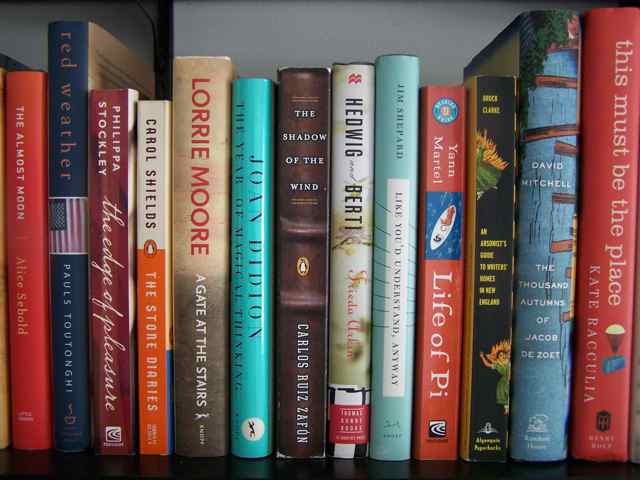 Today’s topic is Character Chatter, so lets talk about unlikeable characters. Who likes them? No one. Or else they wouldn’t be unlikeable, right?
Today’s topic is Character Chatter, so lets talk about unlikeable characters. Who likes them? No one. Or else they wouldn’t be unlikeable, right?
Remember the flap about Nora, the main character and narrator in The Woman Upstairs by Claire Messud a while back? Nora is a woman quietly burning inside with anger and frustrated artistic aspirations. Not someone you might want to have a cup of coffee with in real life, as she might be about to go all Fatal Attraction on you at any moment, but Nora makes a compelling subject for a character-driven novel and is intriguing as a possibly unreliable narrator.
So why should we at least occasionally read books with unlikeable protagonists or unreliable narrators?
- To explore different facets of human nature
- To get inside the mind of someone else
- To view the world differently for a while
- To remind ourselves that appearances don’t tell the whole story
In this New Yorker article, Would You Want to Be Friends With Humbert Humbert?: A Forum on “Likeability”, novelists answer the question that Claire Messud asked an interviewer in response to the interviewer’s question about Nora’s likeability. The answers vary in length, and are worth reading in full, so I’ll just quote part of Margaret Atwood’s response here:
Intelligent readers do not confuse the quality of a book with the moral rectitude of the characters. For those who want goodigoodiness, there are some Victorian good-girl religious novels that would suit them fine.
Also, what is “likeable”? We love to watch bad people do awful things in fictions, though we would not like it if they did those things to us in real life. The energy that drives any fictional plot comes from the darker forces, whether they be external (opponents of the heroine or hero) or internal (components of their selves).
Do women writers get asked this more than male ones? Bet your buttons they do. The snaps and snails and puppy-dog’s tails are great for boys. The sugar and spice is still expected for girls. Up to a point.
My most recent read with an unlikeable narrator was Summer House with Swimming Pool by Herman Koch. (I ended up listening to most of it on audio after starting to read it in print, and the narration by Peter Berkrot was great!)

Looking for more takes on the topic of Character Chatter, or the alternative topic for today’s Armchair BEA, Blogging 101, from those of us who couldn’t attend the real-life Book Expo America going on in New York right now?
Visit the link-up at Armchair BEA headquarters!

Excellent points! Often “unlikeable” characters are the most revealing and interesting. I must admit, though, today I opted for ones I enjoy! http://mwgerard.com/armchair-bea-2015-character-chatter/ Happy ABEA!
That is one creepy book cover! Eek!
I think unlikable characters are good for the story, but I’ll admit that I don’t necessarily like them as the main character. I have read very few books where the main character is unlikable. In the instances I have, such as Holden Caulfield from The Catcher in the Rye, I just ended up hating the book. But, if the character is a side character, like Professor Umbridge in the Harry Potter series, then I love hating that unlikable character. They make the story fun and interesting.
Yes, I’d rather love a character usually!
I think that happens a lot! Thanks for visiting!
I know that I have let a few bad characters ruin a book for me but usually I can be ‘intelligent’ and still enjoy the experience of reading unlikable character studies. Great post!
I find it harder to watch a TV show with an unlikeable main character, and gave up Mad Men somewhere in the second season when it started to look like Don Draper didn’t actually have the heart of gold that I thought was buried deep inside him!